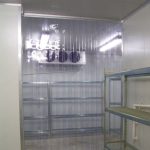When Should Your Commercial Refrigerator Be Replaced?
When Should Your Commercial Refrigerator Be Replaced?
- 10 September 2020
Commercial refrigerators are being utilised by establishments and stores that must keep and preserve different kinds of food products. These refrigerators are truly helpful in maintaining the quality and freshness of food products as they lower and even freeze their temperatures, which then slows down their ripening or deterioration process. They can likewise keep the consumers safe from obtaining diseases since all food products are guaranteed to be free from germs and bacteria.
Due to the significance of commercial refrigerators, owners of establishments and stores must maintain them all the time. And while repairs can usually fix any concern or problem that these appliances may encounter, there will be times where replacing them is the only solution to select refrigerator issues. To help you out, here are some clear signs that outright tell you to replace your commercial refrigerator.
Spoiling of Food Products
As previously mentioned, commercial refrigerators are intended to preserve the quality and freshness of food products due to the process of refrigeration. So, if your refrigerator cannot keep your food products fresh within their shelf life or before their expiration date anymore, then its components might have some major problems. Your unit might have faulty components that cannot fully provide the needed low or freezing temperatures. Its energy consumption might even exceed its optimum capacity, which is a clear sign that you need to replace your refrigeration unit right away.
High Rate of Condensation
Condensation is one of the most common issues that is plaguing refrigeration units for a long time. Most of the time, this issue is easily resolved through repairs and maintenance. But if the rate of condensation is abnormally high, then your unit is most likely broken. With excessive condensation, the surface of your refrigeration unit appears to be sweating all the time, which indicates that your unit has a failing cooling component. Moreover, some parts of your unit might already have signs of mould or mildew. Keeping this problem unchecked for a long time can ultimately resolve to rampant food spoilage.
Overworking Refrigerator
If the back part of your refrigerator unit is too hot to touch, then it means that it has been overworking for quite some time now. You see, a refrigerator unit that is in proper working condition can easily prevent heat from getting to its metallic surface or chassis due to the presence of the insulation on the coils at the back. The coils are said to be overworked if they release too much heat. As the back part of the unit becomes too hot, its components will then overheat, affecting the overall function of the refrigeration unit. In this case, the coils must be checked first before either repairing or replacing them.
Presence of Strange Noises
Another clear sign that your commercial refrigeration unit needs replacement immediately is if it produces strange and weird noises. Noises within the unit are normal, especially during heavy refrigeration load. However, if the noises are significantly louder than they were before, then there might be some problems within your unit. These noises can likewise be nonstop, which can be alarming during normal business operations. Replacing your refrigeration unit is still the best solution to this noise problem. If your refrigeration unit possesses one or more of these problems, then it is just suitable for you to replace it immediately. Repairs might save some of its components, but the problem within the unit can be long-lasting and permanent. Replacing your unit with a new one can guarantee you all the benefits of refrigeration not only to your food products but also to your whole business operations.
Mark Connelly
C&M Coolroom Services
E-mail : markconnelly@cmcoolrooms.com.au
Mobile: 0412 536 315


